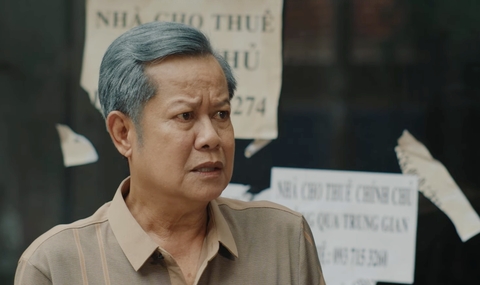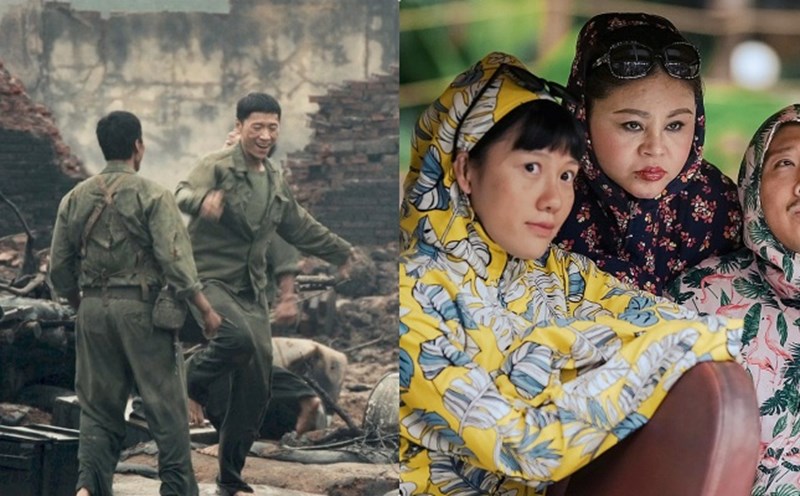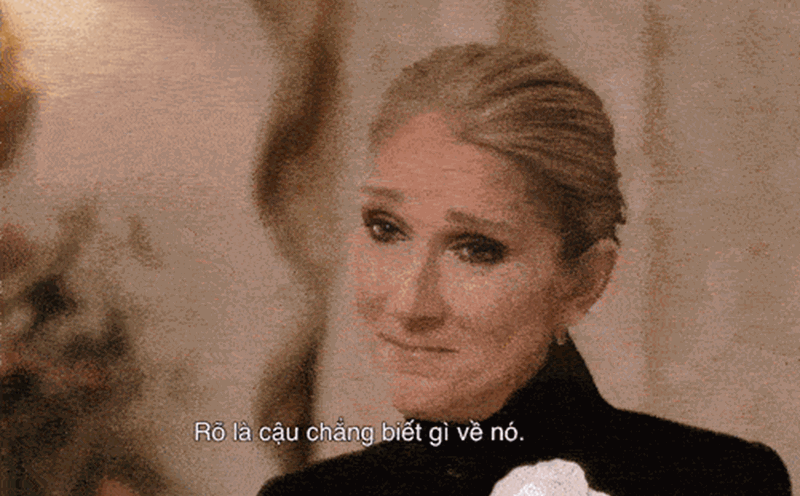In addition to the hundred-billion-dong effect of the "scanning" of theaters of the two works "Red Rain" and "Death in the air" - the Vietnamese film distribution market has become stagnant with many films losing money and quietly leaving theaters early.
The series of films that failed in revenue also rang the bell for quality, poor, and outdated scripts, and the direction of Vietnamese films in the current fiercely competitive period.
The movie "The Shopping closet: If you play, you can accept it" - a movie starring Cat Phuong became a big shock when the revenue only reached 153 million VND after the screening time. The work was commented to be ugly in both content and acting, with a forced plot and awkward dialogue.
The behind-the-scenes of the film also caused a stir when a conflict broke out between the main actor and director Hoang Anh Duy, causing the producer to seek legal intervention. The incident not only affected the reputation of the work but also showed a lack of professionalism in the production process - a factor that caused the audience to increasingly lose confidence in Vietnamese films.

The film "Doi gi mo di" - an independent film about the elderly pursuing their dreams with a humane message but still cannot escape the " trail of falling into" with low revenue, earning only 309 million VND.
The film is criticized for being long-running, slow-paced and lacking in its climax, making it difficult for young audiences - the main customer group of cinemas - to sympathize. A touching story is not enough when the film lacks attractive cinematic elements to keep viewers.
One notable case is "Closing the deal!" - a film testing AI technology to "replace" Miss Nguyen Thuc Thuy Tien after being involved in a scandal.
Despite earning more than 5 billion VND, the film is still considered a failure due to poor quality, "fake, lifeless" AI character images, and bland content. This case reflects reality: new technology can attract curiosity, but if it is not accompanied by emotions and stories, the audience will quickly turn their backs.
Even films with investments of tens of billions of VND still have unmatched revenue such as "Chi Nga Em Van" (13 billion VND), "Hoi Anh Da Mot Chyen T sao" (9.7 billion VND) or "Khen Thuong Van Duong (17 billion VND). With this achievement, the films have not helped the producer recover capital.
Most of these works have in common: weak scripts, vague messages and lack of novelty in storytelling.
These consecutive "falling" questions the big question: why are Vietnamese films still easily failures despite the growing film market and Vietnamese audiences willing to spend money to support domestic films?
"Red Rain" was widely supported for more than a month in theaters, with audiences going to see it more than 10 times, and the majority still lining up to wait to enter theaters at the final stages.
Meanwhile, the series was "cold-shouldered" right at the first screens when it first appeared in theaters.
The answer lies in the gap between ambition and ability. Many directors and producers follow the trend without forgetting the core elements: script, emotions and empathy. A film may not be technically perfect, but if it is sincere and has a story that touches the hearts of viewers, the work still has the chance to "survive" at the cinema.
Therefore, 2025 is a harsh test, forcing Vietnamese filmmakers to look back. It is not possible to expect the audience to "achvate" it like a decade ago, when they now have access to high-quality international films with just a few clicks. To conquer viewers, Vietnamese films need to dare to innovate, but must go with real and careful investment from ideas, scripts, acting, music to promotion.











